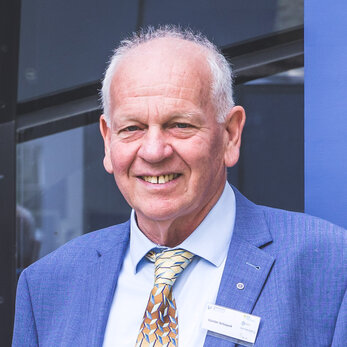Institute of Synergetics and Psychotherapy Research
Director // Univ.-Prof. Dr. Dr. Günter Schiepek
The research institute was founded in 2009. It's name reflects its close connection to synergetics, a transdisciplinary field that describes complex systemsmade up of many cooperating subsystems. This approach serves as the theoretical and methodological foundation of our work.
Led by Univ.-Prof. Dr. Dr. Günter Schiepek, the institute builds on scientific groundwork laid at the Universities of Bamberg, Münster, and RWTH Aachen which played significant roles in Schiepek’s academic journey. The Synergetic Navigation System (SNS), developed through a research project at RWTH Aachen and in collaboration with the Center for Complex Systems (Munich/Stuttgart), has been further advanced at the institute since being brought to Salzburg.



